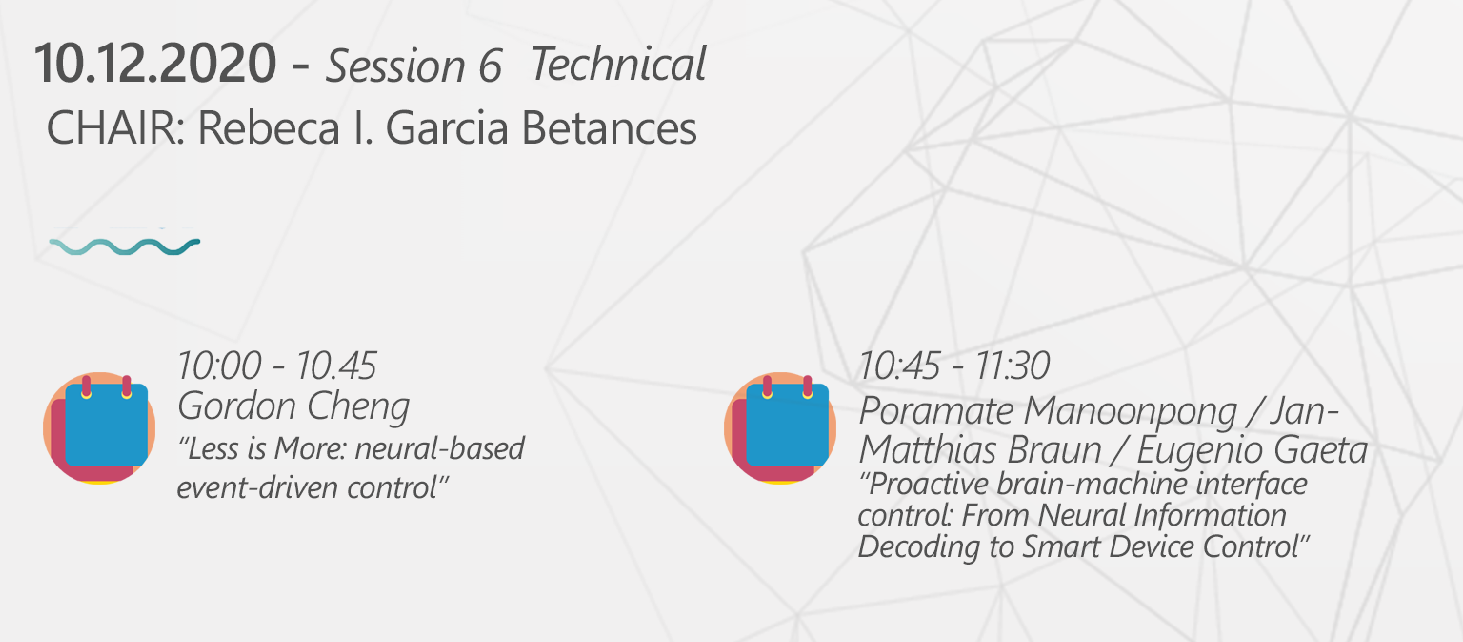
Session 6 - Details

Less is More: neural-based event-driven control
Gordon Cheng
In this talk, I will present a neural-based event-driven control scheme, I will show effectiveness of handling large amount of sensory data in yielding meaningful seamless human-robot interactions. I advocate that taking a neuroengineering approach can overcome long-standing problems in the control of highly complex robotic systems. Several examples will be given in this presentation to demonstrate the effectiveness of such an approach.
Proactive brain-machine interface control: From Neural Information Decoding to Smart Device Control
Poramate Manoonpong, Jan-Matthias Braun, Eugenio Gaeta
In this talk, we will present the overall proactive brain-machine interface (BMI)-based control framework developed in our EU Plan4Act project. Specifically, we will show how predictive neural activity in the (macaque) brain is translated into commands for proactively controlling smart home devices. We have developed artificial neural networks for neural activity processing and implemented them on an embedded FPGA-based hardware controller. Though the controller, we can robustly extract and predict sequence-predicting neural activity for real-time proactive control. We will also present the development of our smart home interfaces based on semantic technologies and IoT standards with machine-understandable instructions for proactive BMI control of home devices. All in all, the project has extended the recent experimental results in the domain of BMI which still lacks predictive planning for proactive device control. Our vision is to later exploit the developed emerging technologies to improve the Quality of Life of people with disabilities in a far-future. This will endow them with the capability to plan a daily-life task and robustly achieve it without the need to invoke each individual action to reach their goal.
Computational Neuroscience Group



